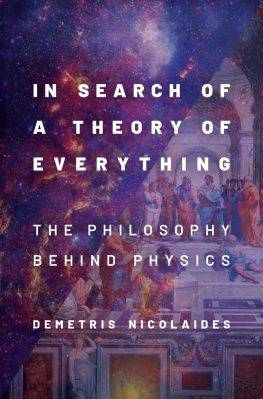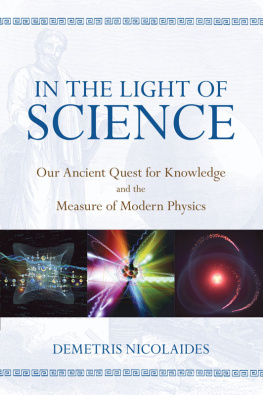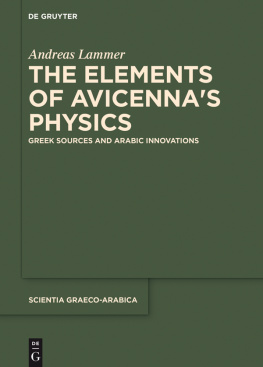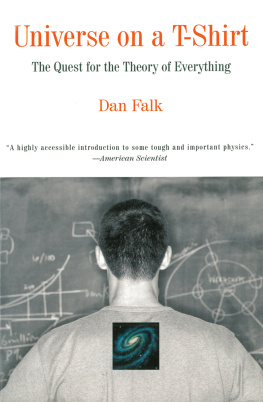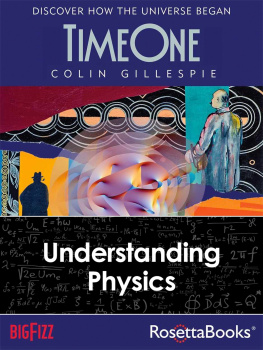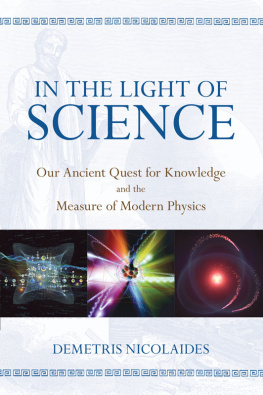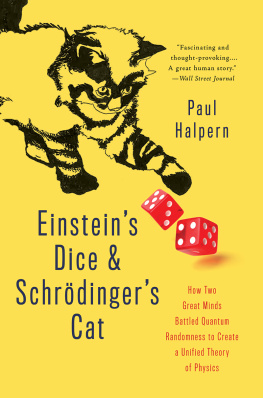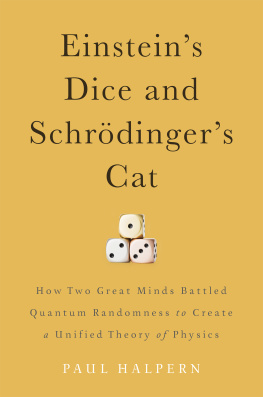In Search of a Theory of Everything

Oxford University Press is a department of the University of Oxford. It furthers the Universitys objective of excellence in research, scholarship, and education by publishing worldwide. Oxford is a registered trade mark of Oxford University Press in the UK and certain other countries.
Published in the United States of America by Oxford University Press
198 Madison Avenue, New York, NY 10016, United States of America.
Oxford University Press 2020
All rights reserved. No part of this publication may be reproduced, stored in a retrieval system, or transmitted, in any form or by any means, without the prior permission in writing of Oxford University Press, or as expressly permitted by law, by license, or under terms agreed with the appropriate reproduction rights organization. Inquiries concerning reproduction outside the scope of the above should be sent to the Rights Department, Oxford University Press, at the address above.
You must not circulate this work in any other form and you must impose this same condition on any acquirer.
CIP data is on file at the Library of Congress
ISBN 9780190098353
eISBN 9780190098377
For my Maria-Christina, my daughter, the most precious of all that exists!
For Anna, my loving wife
For my mother and the memory of my father, for their unconditional love
Contents
I thank my teachersincluding my PhD mentor, professor Alexander A. Lisyansky, and professor Jacob Neubergerfor teaching and challenging me, and my students, whose thirst for knowledge keeps me improving.
Im grateful to physicist Walter Polkosnik, philosopher Richard D. McKirahan, and historian of science Joseph D. Martin, for their useful comments and overall support of this book project.
Im sending special thanks to an anonymous Oxford University Press reviewer, whose insightful reading of the manuscript and subsequent thoughtful comments and recommendations undoubtedly led to a significant improvement of the book.
I am forever grateful to my literary agent, Nancy Rosenfeld, for her kindness, wisdom, guidance, and for giving hope to the writers of the world.
Im thankful to Bloomfield College for giving me the opportunity to research this topic.
All people from Oxford University Press deserve a special recognition for their diligent work. Those with whom I had the pleasure of interacting directly include editor Jeremy Lewis, editorial assistant Bronwyn Geyer, project manager Rajesh Kathamuthu, and editor Leslie Johnson. My sincere thanks!
Im thankful to my wife, Anna, for her continuous support in pursuing my research, and to our daughter, Maria-Christina, for asking so many questions about the worldsome of which have found their way into this book.
In Search of a Theory of Everything is an adventurous journey in space and time in search of a unified theory of everything by means of a rare and agile interplay between the natural philosophies of influential ancient Greek thinkers and the laws of modern physics. For a theory of everything, all the phenomena of nature share a subtle underlying commonality and are explainable by a single overarching immutable principle. Reading the past for what it is, is of tremendous value, but so is its reading from the perspective of modern knowledge. Not to judge it for its flaws but to be inspired by its insights. This comparative study of the universe is the spirit of In Search of a Theory of Everythingto physics through philosophy, to the new via the old, in a balanced way.
A relatively easier analysis of nature, that of a major natural philosopher of antiquity, commences every chapter to fasten the bedrock for the more complex. The transition into the more complicated views of modern physics is gradual and systematic, entwining finely the two, the ancient with the new, the forgotten with the current, by unfolding a history and a philosophy of science, and connecting all the great feats of the mind and time. Those philosophers had ideas that resonate with aspects of modern science; puzzles about nature that still baffle; and clever philosophical rationales that can be used to reassess completely anew fundamental but competing principles of modern physics, even to speculate about open physics problems. In Search of a Theory of Everything is a new kind of sight, a philosophical insight of modern physics that has long been left unexamined.
About 2,600 years ago, the ancient Greeks had a magnificent intellectual awakening that contributed to the rise of their civilization. Suddenly the age-old popular mythological worldviews were questioned, rethought, and eventually changed. Nature was no longer seen as a chaos of random, unpredictable, and incomprehensible phenomena attributed to mysterious supernatural forces through myths, superstition, and the chancy decisions of capricious, anthropomorphic gods. On the contrary, nature was viewed as a cosmos: a well-structured, organized, ordered, harmonious, self-contained, self-consistent, and beautiful whole in which the phenomena were natural components that obeyed intrinsic causal laws that could be discovered and understood by the practice of rational analysis of nature and without invoking the supernatural. A profound transition in human thought took place that was a consequence of the realization by these philosophers that nature is comprehensible. A simple question emerged: what is the nature of nature? The prolific answers these Greek thinkers offered ascribed purely naturalistic causes to all phenomena in nature and created a new outlook, the scientific! Science has been influencing the world ever since by guiding it out of the cave of ignorance and into the light of truth.
Carlo Rovelli holds the same view: Carlo Rovelli, Reality Is Not What It Seems (New York: RiverHead Books, 2017), 21 (Kindle ed.).
of antiquity that well consider were philosophers but also physicists. Philosophy and physics were then closely related fields.
According to legend, Pythagoras probably coined the term philosophy, love of wisdom, in Greek. So to define philosophy we need to know what wisdom is. Recall that the Oracle of Delphi prophesied that Socrates was the wisest, but he humbly doubted it. by recognizing our minds limitations and the uncertainties of our methods of inquiry.
, well talk about nothing, in reference to the philosophy of Parmenidesthe philosopher who contemplated well, nothing, firstin order to check the validity of one of Einsteins most bizarre claims, which he based on the physics of his relativity, that, change, in the universe, is an illusion.
Anyhow, Im not sure what wisdom might be, but Im sure that the journey to it begins with a question and continues with courage, determination, and an honest effort to eliminate age-old, false beliefs and prejudices and seek rational (not dogmatic) answers. Now, although we are born imaginative creatures with insatiable curiosity and desire for adventure and knowledge, with age we usually settle down both physically and mentally (our body and mind) and inquire less and less. Asking is a trait of youth but of philosophy, too. Neither solar nor entropic time ever ages the inquiring mind.
In a more concrete example, philosophy for me is this: I read a book about physics (of Albert Einstein, Steven Hawking, Michio Kaku), and I usually understand it well. Then I read a book about philosophy (of Aristotle, Bertrand Russell, Karl Popper), and I often dont understand it that well. So then I reread it, and again, only to find out that I now understand better the

